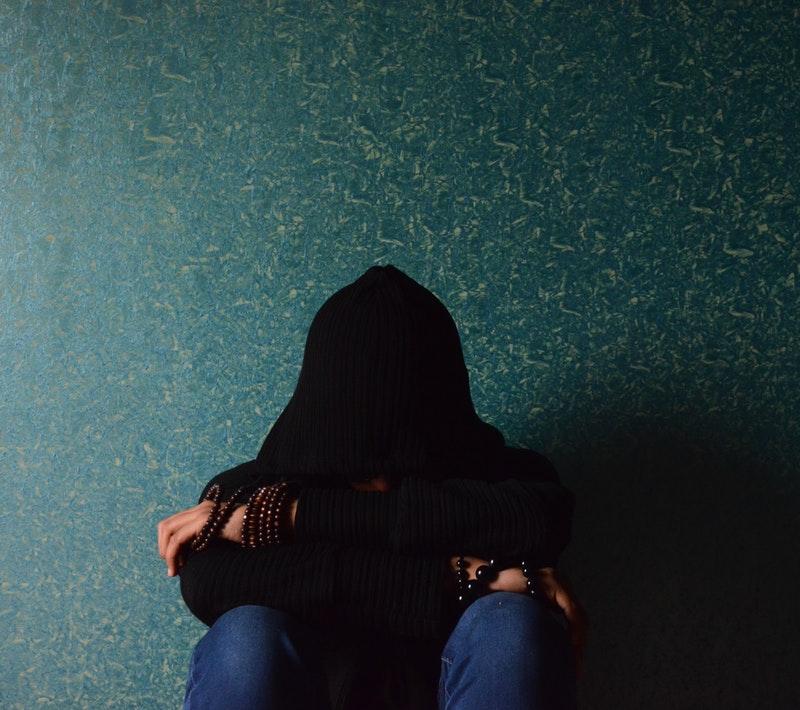All You Need To Know About Depression

With the world being in absolute turmoil today, it is hard not to fall into despair, eventually leading to a bad case of depression. Depression is a common mental illness that affects between 5 and 12% of men and between 10 and 25% of women during their lifetime. It is characterized by a set of signs or symptoms that vary widely from one person to another and from one episode to another. But as a general rule, it is accepted by the medical community that depression is characterized by a negative mood and/or a manifest loss of interest, and even pleasure. In this article, we’ll be showing you some of the things you need to know about this disease.
Symptoms of Depression
The symptoms of depression are mainly identified in three separate dimensions- the physical (somatic), the psyche, and the behavioral tendencies (psychomotor). These are some of the telltale signs of a depressive state;
- The hypersensitivity or emotional tantrums in response to unprovocative events is one of the signs of depression. It is usually marked by increasingly regular and uncontrollable crying attacks.
- The inability to feel pleasure and positive feelings in situations that previously were always experienced in a pleasant way is what psychiatrists call ‘anhedonia’ (which literally means ‘inability to pleasure’). The depressed patient in this case loses all feelings of the taste for life and pleasure.
- Self-devaluation and self-accusations are also signs of depression. You would also find an intense feeling of guilt, over past events.
- Depression also triggers incomprehensible irritability caused by harmless events.
- Anxiety is also a telltale sign. Any projection towards the future is a source of anxiety and the best arguments in the world are insufficient to reassure the person affected by the disease.
- A major symptom of this condition is mood disorder. This is intensified by a systematic evaluation of the capacities of the affected person. It would then cause a disturbance in judgment which inevitably leads to the same conclusions, and renders the person concerned unable to step back from the situation and find solutions.
- There is also the possibility of the affected person having difficulty concentrating, impaired memory, or thinking slowly.
- Depressed patients also possess a lack of will. They also find it very difficult to make decisions and are majorly unmotivated.
- Sleep disturbances are also common during depressive episodes. It can be insomnia or simply having difficulty falling asleep. There is the possibility of the person sleeping too much, or not sleeping at all. These two states are referred to as hypersomnia, and insomnia, respectively.
- Eating disorders are frequent and sometimes very severe. A significant gain or loss in weight in a short space of time can point to a depressive episode.
- With depression, there is a phenomenon of avoidance and isolation. Human relations become quite difficult and strained. There is also the tendency for withdrawal. It is both a symptom and a consequence of the disease.
- This is the most alarming symptom of an advanced stage of the disease; the appearance of dark and morbid ideas and their permanent rehashing. At this point, suicidal thoughts become as clear as day. Being able to prevent the presence of suicidal ideas and behavior is a priority.

Causes of Depression
Have you ever wondered why some people tend to be more affected than others? What makes a person more vulnerable to depression? It is never easy to determine the exact cause of this disease. There is a whole host of causes or vulnerabilities that when they converge can lead to depressive illness. Some notable ones are;
It has long been known that there are families where the risk of depression is much higher. In these families in general, several members are affected by the disease. Some recent scientific studies have validated this finding by showing that certain genetic variations predispose to depression. Depression is not a genetic disease, however. We can simply say that certain genetic variations predispose to the disease and therefore make its members more vulnerable.
2. Environmental
This is probably the most common factor in the development of depression. Numerous studies have emphasized the role of stressful and traumatic events as a trigger for depression.
There are many events that can lead to depression in humans. They can be traumatic, like physical, sexual, or psychological violence, especially when they occur in childhood. It can still be the early or violent loss of a loved one or a sudden separation. Or, the events can be simply very stressful as the loss of a job, then a situation of unemployment which lasts longer than expected, or financial problems which worsen. Legal problems which do not promise favorable outcomes, or conflicts at home, or at work. The list of such events is endless and of course, unique to each person.
3. Psychological/Personality
In addition to the factors already mentioned, there is another element that can favor the onset of depression: the way each person sees the world. We are talking about how we are, perceive, and feel, in the absence of depression. From a given event, two individuals will not produce the same thoughts or feelings. They will not necessarily see things exactly the same way, and nobody will complain about it. This is why we do not all fall in love with the same woman or the same man.
Some of us will, therefore, be more vulnerable to depression because of our ways of seeing the world. Thus, anxious, pessimistic, introverted, shy, or people lacking self-confidence are more likely to suffer from depression at some point in their lives. Their adaptation to stressful life events may be altered by their personality traits.
The Effects of Depression
When the disease sets in, and the negative mood takes over life, the effects can be manifold. They are sometimes more difficult to wear than the symptoms themselves.
There is the gaze of society, which remains very, and always very negative towards mental illness and depressive illness. While it would never occur to anyone to question either the suffering or listen to the complaints of the patient suffering from depression, it is often considered that the patient is the victim of a carelessness that would come from a lack of courage and will. People who suffer from depression will often hear themselves say, “A good kick … and it will get better”. However this is not the case. One does not come out of depression with just good intentions and efforts of will. This disease, like the others, requires real therapeutic management and such remarks end up degrading an already very negative self-image due to the disease and reinforcing the difficulties in communicating and withdrawal.
2. Unemployment
Depression has an adverse effect on professional performance, and so, it is not uncommon for depressed people to find themselves unemployed during the course of their illness. The resulting financial problems obviously do not help matters. And sometimes family ties are broken. The social consequences are therefore far from negligible and to be taken into account when taking care of the disease.
3. Substance Abuse
The taking, and subsequent abuse of “tranquilizing” substances such as, alcohol, tobacco, cannabis, non-prescribed drugs such as benzodiazepines, etc. to “calm” the suffering, can sometimes complete the picture of the consequences and complicate the problem.
4. Physical Deterioration
The physical deterioration that comes with this condition cannot be overemphasized. Increased cardiovascular risk, overweight, underweight, misuse of psychoactive substances (especially alcohol and tobacco), weakness, fatigue, and so on are some of the aftereffects of the condition. Overall, morbidity increases in people with depression.
How is Depression Treated?
Therapy
This is the short answer to that question. As we now know, depression is a complex disease with multiple causes and many symptoms and effects. This condition will not stop until it affects the person wholly. The challenge is to restore the patient suffering from depression to a balance on the biological, social, or psychological level. Several types of therapy will, therefore, be possible or even necessary and complementary.
Depression is a disease that affects the brain. The science of it goes like this; The transmission of feelings, thoughts, perceptions, and emotions between brain cells (neurons) occurs through molecules called neuromediators. These messengers allow neurons to communicate with each other. When you are depressed, these messengers are no longer produced in the usual way. The result is a lack of these messengers in the synapse (the space between nerve cells). To remedy this problem, pharmacologists have found several solutions that will aim to increase the neuromediators in the synaptic space. Certain treatments will act to ensure that the enzyme that destroys these neurotransmitters is blocked.
Benzodiazepines, tranquilizers, sleeping pills, neuroleptics, and antipsychotics:
Using this type of medication ON A DOCTOR’S PRESCRIPTION may be necessary to help overcome resistant depressions.
2. Sociotherapy
Depression has many consequences at the relational level. It also affects our activities in general, our lifestyles, and social benchmarks. If the disease interferes with the interactions of the suffering person, it is important that he relearns to confront reality and the presence of another person.
Sociotherapy will, therefore, bring together a set of individual activities offered to people suffering from depression, according to their requests and needs. These activities will spur them to improve their relationships with other individuals, to reinvest in other activities, to rediscover the taste for work (resumption and safeguarding of professional activity are very important therapeutic objectives) and quite simply, to find a rhythm to adapt better to the society in which they live.
This socio-therapeutic care is the business of an entire team, consisting of doctors, nurses, social workers, psychologists, or occupational therapists.
3. Psychotherapy
Depression is primarily a disease of the mind and soul. Psychotherapy is the generic term designated to the different care techniques used in treating people with mental illnesses. Today, there are many psychotherapeutic techniques that have been developed to meet psychological needs. Among these, interpersonal therapy, cognitive and behavioral therapies, brief therapy, mindfulness-based therapies, and psychoeducation have been instrumental in treating patients with depression. Its effect is likened to certain antidepressants.
People and Structures
Asides therapies, people, and social structures are also instrumental in treating patients with this illness. Some of them are;

When we feel that the situation is beginning to elude us, we should not hesitate to act. One of the first good decisions is to start by consulting. Consulting with a family doctor who knows you best, is very effective. Knowing your history and medical background, the doctor would be able to take stock of the situation, and take charge. Your personal doctor will also refer you to a psychiatrist specialist if he deems it necessary.
2. Specialists
In such cases, a depressed patient is referred to a psychiatrist specialist. It is not easy to find a specialist yourself. So, you’ll need a professional for that. Also, there are public establishments in general which provide medical and psychological care at no cost to patients.
3. Associations
It can always be useful to ask for opinions and advice from people who have experienced the same problems as us. We have shared experiences, feelings, and needs and we are more likely to find an attentive ear or more precise information on the steps to follow and the pitfalls to avoid. This allows us to share and move forward together.
4. Friends
When faced with illness, it is important never to be alone. It is not easy especially since the disease isolates and tends to seek this isolation. Our friends will be significant allies in the fight against illness and isolation. It is this “contact with others” we need to keep us in reality. They can warn us when the disease takes over and the symptoms reappear. They can intervene in dangerous situations. They can simply give us the support, comfort, and affection we need. It is important to learn to choose the closest people, and on whom we know we can rely on during difficult times.
5. Become a Co-Therapist
The first factor of this healing is the patient himself. The disease weakens and handicaps, but a few simple measures and a different way of living with the disease can improve care and facilitate the work of caregivers. For example, it involves accepting that you are sick and becoming aware of your disorder. It also consists of seeking information about one’s illness, in order to learn to recognize the symptoms. It can also translate into a better understanding of how its treatment works, what it is for exactly, and why it is essential to follow it to the end. It also means learning to put in place strategies to maintain a balance in our lifestyles, activities, and relationships.
Depression is not a reality anybody deserves to face. Knowing what the sickness is all about will help you stay in check, recognize the symptoms on time, and work towards your healing. Depression can be cured, it doesn’t have to be your reality.
Be of good cheer, bad times don’t last forever!
All pictures are taken from pexels.com and no attribution is required
She's an African, Afro-American breed. She's way too radical in her writing style. She adds in a little childish nature to the mix, representing all you want to be but can't.

